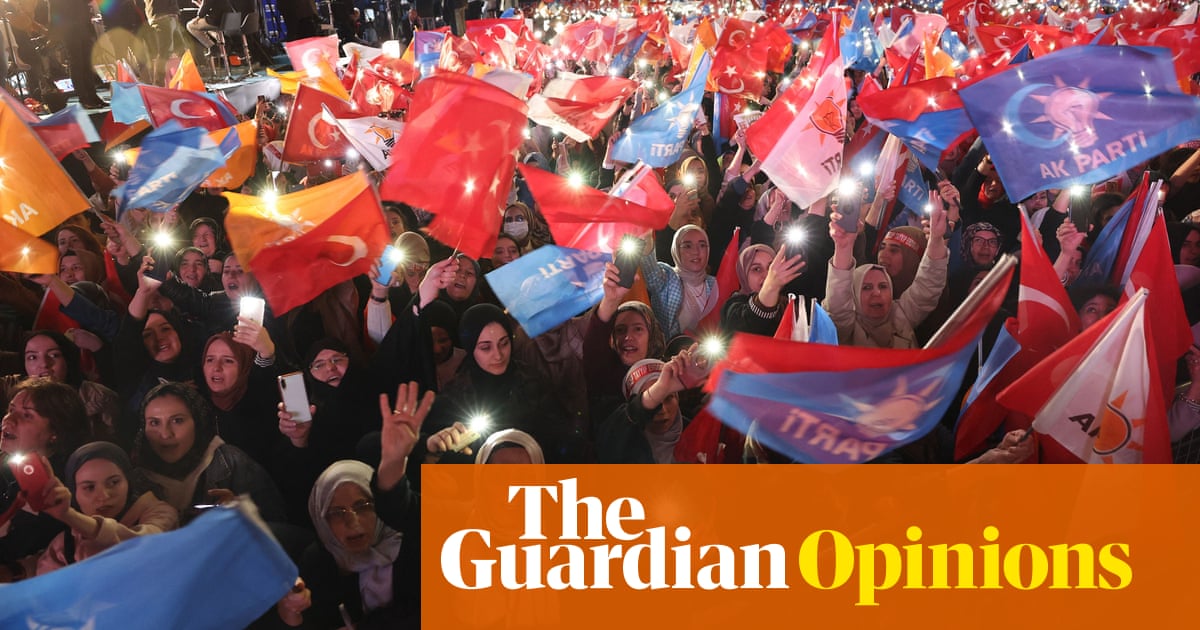
Passing the buck is a gamble usually employed by states desperate to avoid conflicts they are likely to lose. The buck-passing is often followed by a bargaining phase, during which states try to strike a deal that might maximize their gains and minimize potential threats to their interests.
This is what has been happening recently in Libya. Conditions have drastically changed since January and it has become crystal clear to all who are involved in the war there that, just like in Syria, there is no military solution to the conflict. This has led to intensive diplomatic exchanges in an attempt to agree what I will call a “fully packed peace package.”
This week, Ankara welcomed top diplomats from regional and European capitals for talks on Libya, in particular, and Syria. In the midst of these visits, Turkey’s top diplomat also paid a surprise midweek visit to Libya. The increasing diplomatic chatter reflects the fact that there is more going on here than the rhetoric suggests.
The first visitor to Ankara was Iranian Foreign Minister Mohammed Javad Zarif, on Sunday. He and his Turkish counterpart, Mevlut Cavusoglu, held a joint press conference on Monday during which they announced that Tehran will soon host a meeting of leaders of Turkey, Iran and Russia to discuss Syria, as part of the Astana peace process. This was Zarif’s second foreign visit since the global pandemic began; the first was to Syria in April.
The ministers discussed, and even agreed on, topics that might raise a few eyebrows in some capitals, most likely Washington, and both sides seemed happy with the way the talks had gone. Zarif then flew to Moscow for talks that were likely to include discussion of his Ankara visit.
Russian Foreign Minister Sergei Lavrov and Defense Minister Sergei Shoigu were due to arrive in Ankara on the same day as Zarif; however, after a last-minute change in their plans, the meeting was postponed until “a future date.”
While Turkey’s relationship with France has been complicated by the former’s stance on Libya and Syria, Ankara seems to be aiming to win support from Germany and Italy.
Sinem Cengiz
At a time when Turkey and Russia are engaged in a fresh round of talks to renew their joint commitment to peace and stability in Libya, the postponement inevitably led to speculation about the reason. Was it the result of political differences?
However, political disagreements between Ankara and Moscow are nothing new; in fact, the delicate nature of their cooperation is one of the most important aspects of the “New Middle East.”
Cavusoglu said the postponement of the talks was not the result of a “crisis” in efforts to agree a ceasefire agreement in Libya, but to allow further engagement with partners in the North African country in an attempt to reach a lasting truce.
“It is evident that we support different sides than Russia but it is unreasonable to suggest that there has been a crisis regarding the ceasefire. We decided to postpone the meeting together,” he said.
Cavusoglu and Lavrov instead had a telephone conversation, during which they decided that their deputy ministers would continue the negotiations in the days to come, according to the Turkish ministry.
And so we return to my reference to a “fully-packed peace package.” It seems Moscow wants negotiations about Libya to also include Syria. The postponement therefore seems to reflect an effort to save time by evaluating developments on ground in Syria and Libya together, and to provide more time for further talks with partners in Libya in an attempt to reach a lasting truce.
Still, it is worth noting that both Ankara and Moscow want talks on Libya to continue, given the complexity of their relationship and mutual interests, which range from the Black Sea to the Caucasus, as well as Syria and Libya.
Italian Foreign Minister Luigi Di Maio also postponed a visit to Ankara this week, scheduled for Wednesday, but only by two days, until Friday. Interestingly, Cavusoglu on Wednesday visited Libya for official meetings, accompanied by Treasury and Finance Minister Berat Albayrak, presidential spokesman İbrahim Kalın and National Intelligence Organization Chairman Hakan Fidan. The delegation met the UN-backed Government of National Accord’s Prime Minister Fayez Al-Sarraj.
While Turkey’s relationship with France has been complicated by the former’s stance on Libya and Syria, Ankara seems to be aiming to win support from Germany and Italy.
German Chancellor Angela Merkel discussed the conflict in Libya, and the situation in the Eastern Mediterranean, during a video call with Turkish President Recep Tayyip Erdogan, Merkel’s spokesman said on Tuesday. The leaders reportedly agreed on the need for reinforcement of UN-sponsored peace talks on Libya.
The talks between Turkey and Italy were expected to cover a number of regional and international issues, including Turkey’s EU accession process. Given that Italy currently leads the European “Irini” mission to monitor and enforce the UN arms embargo on Libya, and prevent the smuggling of weapons through the Mediterranean, Ankara is likely to consider the talks with Rome important.
For time being it seems all sides are evaluating the cards they hold before they lay them on the table.
Sinem Cengiz is a Turkish political analyst who specializes in Turkey’s relations with the Middle East. Twitter: @SinemCngz
Disclaimer: Views expressed by writers in this section are their own and do not necessarily reflect Arab News" point-of-view










